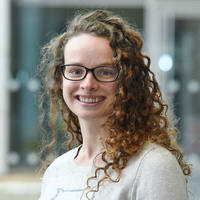Trynka Group
Immune Genomics Group
Mission
Our group aims to uncover how genetic variation shapes immune cell function and contributes to human disease. By bridging the gap from genetic associations to mechanistic insights, from variants to function, we aim to understand the regulatory architecture of the immune system and translate that knowledge into pathways for therapeutic discovery.
Our research combines advanced experimental and computational approaches, structured around three complementary pillars:
1. Single-cell eQTL mapping in dynamic immune states
Genetic variants often exert their effects in a context-specific manner, modulating gene expression only in particular cell types or activation states. To capture these nuanced regulatory effects, we generate large-scale single-cell transcriptomic datasets across resting and stimulated immune cells. This allows us to map how genetic variation influences gene regulation in dynamic, disease-relevant conditions and uncover hidden layers of immune regulation.
A central part of this work is Project JAGUAR, a large-scale collaborative effort to study how genetic ancestry shapes immune gene regulation. Most existing genomic datasets are biased toward individuals of European descent, leaving critical gaps in our understanding of immune diversity across global populations. Through partnerships with researchers across Latin America, we are building one of the first single-cell atlases of immune regulation in historically underrepresented populations. We aim to uncover ancestry-specific regulatory mechanisms and ensure that insights from human genetics are representative, equitable, and globally relevant.
These eQTL maps provide the foundation for our downstream analyses, linking genetic variants to changes in gene expression, cell phenotypes, and eventually to disease risk and therapeutic opportunity.
2. CRISPR perturbation of immune disease–associated genes
While GWAS highlight thousands of candidate disease-associated genes, the specific molecular roles of these genes often remain unclear. We use pooled and arrayed CRISPR screening approaches to perturb nominated genes in primary immune cells and assess the consequences on cell states, functions, and phenotypes. These functional genomics experiments allow us to move beyond association and define causal gene functions that underlie immune-mediated diseases.
3. High-content imaging to reveal cellular phenotypes
Many immune cell functions are reflected in morphology, including shape, motility, polarity, and organelle dynamics, features that are invisible to transcriptomic profiling. To capture this dimension, we use a high-throughput imaging platform that quantifies thousands of morphological and functional features in single cells. By integrating these imaging phenotypes with transcriptomic and cytokine profiling, we can uncover how both genetic variation and gene perturbations influence immune cell behaviour at multiple molecular layers, building a comprehensive picture of cell effects.
Together, these three approaches allow us to connect genetic variants to their molecular and cellular effects, enabling deep mechanistic insight at high-throughput into how disease risk is encoded in the genome. This work also provides a foundation for early-stage drug discovery, from identifying novel targets to understanding context-dependent effects on gene function and therapeutic response.
We are embedded in both the Human Genetics and Open Targets programmes at the Wellcome Sanger Institute, which places our work at the intersection of human genetics, foundational biology and translational impact. Through close collaborations with industry partners, we have a unique opportunity to contribute not only to advances in scientific understanding but also to inform the development of new and more effective therapies.
We are always excited to connect with curious, motivated scientists who share our interest in functional genomics, immune regulation, and the path from genetic variant to therapeutic insight. Whether you’re a student looking for a rotation or PhD opportunity, a postdoc with complementary expertise, or a collaborator with ideas that align with our work, we’d love to hear from you. Our group values interdisciplinary thinking, collaborative spirit, and scientific rigour, and we are committed to creating an inclusive and supportive environment where researchers can thrive.
Core team

Dr Olivier B. Bakker
Postdoctoral Fellow

Dr Lewis D B Evans
Senior Staff Scientist

Gareth Griffiths
Advanced Research Assistant

Dr Teng Hiang Heng
PhD Student

Stuart Horswell
Principal Bioinformatician

Dr Carla Jones
Senior Staff Scientist

Dr Anna (Ania) Lorenc
Principal Bioinformatician

Julie Matte
PhD Student

Dr Tom Snelling
Postdoctoral Fellow

Dr Kyuto Sonehara
Postdoctoral Fellow
Previous core team members

Marisol Alvarez-Martinez
Visiting Worker

Dr Lara Bossini-Castillo
Postdoctoral Fellow

Dr Eddie Cano Gamez
PhD student

Simon Eastham
Advanced Research Assistant

Dafni Glinos
PhD Student

Dr Megan Gozzard
PhD Student

Ziying Ke
PhD Student

Dr Natalia Kunowska
Senior Research Assistant

Dr Marta Perez Alcantara
Postdoctoral Fellow

Mr Tarran Singh Rupall
Technical Specialist

Dr Blagoje Soskic
Postdoctoral Fellow

Dr Anneliese Speak
Senior Scientific Manager

Dr Luca Stefanucci
Postdoctoral Fellow
